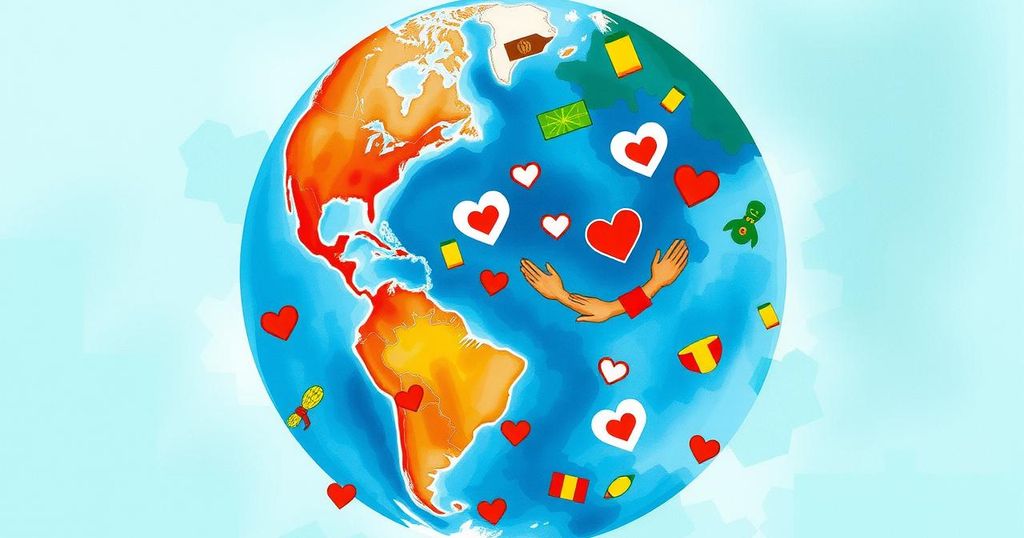America’s Role in the Escalating Humanitarian Crisis in Sudan

The article discusses the dire humanitarian crisis in Sudan, exacerbated by reduced American aid and the complicity of the UAE in supporting violent militias. Eyewitness accounts from refugees reveal the horrific conditions they face. Funding cuts have led to the closure of critical aid facilities, intensifying starvation and suffering. It critiques America’s passive response, contrasting it with past interventions aimed at alleviating suffering.
The ongoing humanitarian crisis in Sudan is characterized by famine, civil war, and horrific atrocities, acknowledged by the United States as genocide. With tens of thousands dead and 11 million displaced, the situation is dire, exacerbated by reduced humanitarian assistance from the Trump administration. Both the Trump and Biden administrations have failed to confront the United Arab Emirates for its support of the violent Rapid Support Forces.
During a recent visit to the Sudan/South Sudan border, refugees detailed their harrowing experiences amidst the conflict. Musa Ali, a former interior designer, lost both legs due to a bombing and faced starvation until his family could send him money. He and his wife fled to South Sudan, witnessing violence and death on their journey.
Teachers Yassin Yakob and Sabah Mohammed also escaped from Khartoum, describing the terrifying conditions of their flight on lesser-known roads. They reported the grim fate of refugees whose vehicles broke down, resulting in starvation as they lacked food and support.
American humanitarian initiatives, like the soup kitchens that had provided critical aid, have suffered due to funding cuts by the Trump administration, leading to the closure of 70% of emergency response rooms. This contributed to the tragic loss of lives due to hunger.
Manal Adam, a 30-year-old refugee from Darfur, recounted her traumatic experiences of rape and violence, which continue to haunt her and her community. She expressed deep concern for her family members left behind in Sudan, reflecting the enormity of loss experienced by many like her. In South Sudan, she continues to face health issues and social stigma related to her trauma.
The Rapid Support Forces’ siege on the Zamzam refugee camp further highlights the dire humanitarian situation, with half a million people suffering from a lack of medical assistance. Many Americans mistakenly perceive the crisis as an unavoidable tragedy, overlooking the potential for action to improve the situation.
Historically, the West has intervened to reduce suffering and provide support in similar crises. However, the current reduction in humanitarian aid and silence regarding the UAE’s involvement may only serve to worsen the suffering and atrocities faced by the Sudanese people.
The humanitarian crisis in Sudan is acute, marked by violence, displacement, and starvation. Recent funding cuts to humanitarian assistance have exacerbated these issues, highlighting a concerning shift in how America responds to global crises. The testimony from refugees underscores the human cost of this negligence, calling for renewed awareness and action from the international community to address these urgent needs.
Original Source: www.nytimes.com








